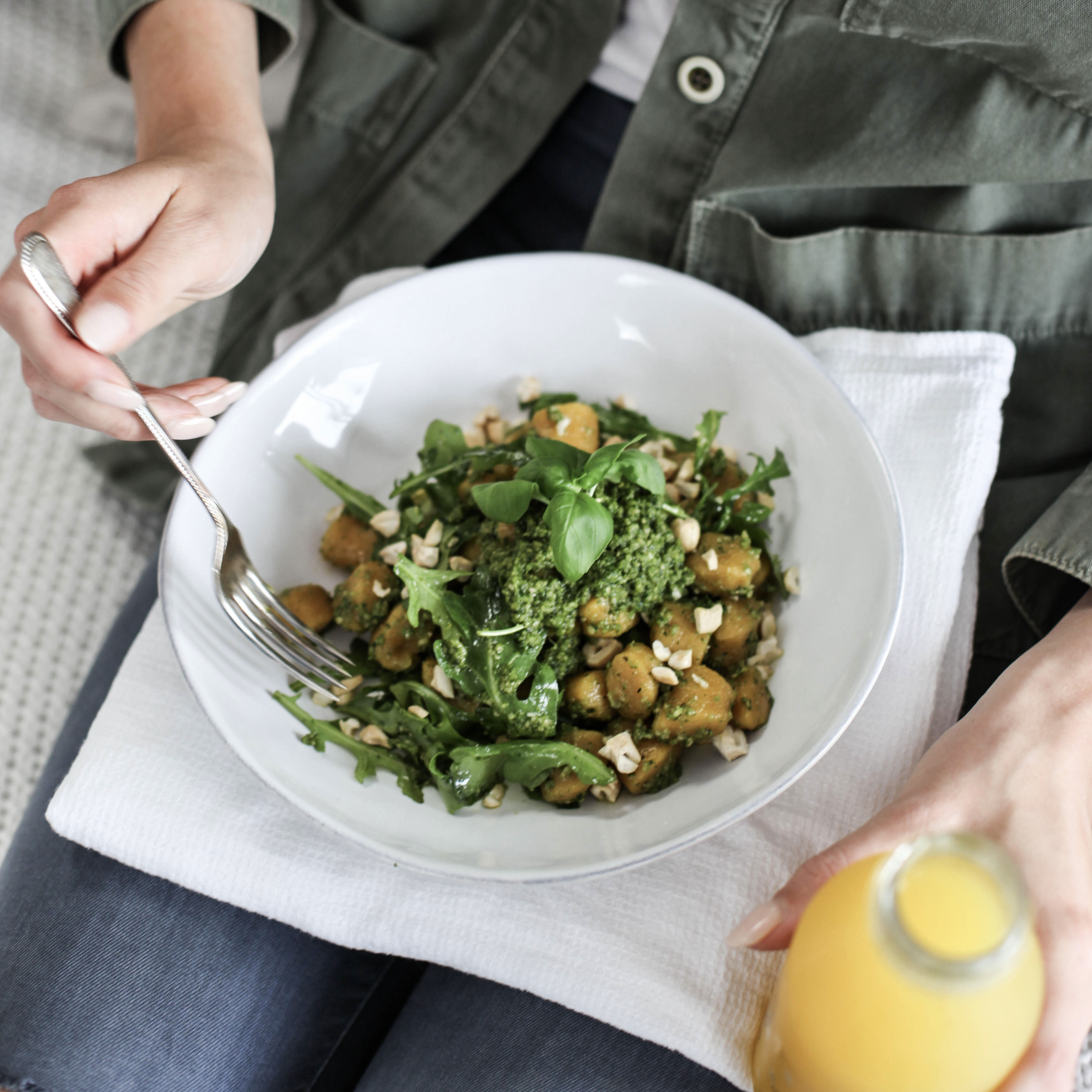Intuitive eating
by Olivia Cartwright,

At Radiance, we recognise that seeking optimum health is about being balanced, realistic and honest. We know that there is no one-size-fits all approach to wellbeing; we are all different and therefore our approach to health needs to be personal and holistic. Following sensible guidance and expert tips can be part of the picture but it’s also vital to understand your own body and what makes you feel good.
This is where the much talked about philosophy of intuitive eating comes into play. Despite the fancy name, this approach to what we eat is straightforward at its core. It’s about simplifying your approach to food and eating in a way that is more mindful by listening to your body.
Many of us live on autopilot and are eating certain types of foods or at particular times of the day without really thinking about whether that fuels us in a satisfying and healthy way. This includes not being in tune with genuine hunger and therefore overeating, or not giving our digestive system sufficient rest between meals.
Instead of feeling confused by constantly changing advice about what we supposedly should or shouldn’t be eating, the intuitive eating approach encourages you to listen to your body as the starting point for which foods suit you best.
One of the benefits we most appreciate with a cleanse is that it provides the space to step back from ingrained eating habits or food crutches and then to reintroduce foods in a mindful way. This allows you to focus on which food and how much of it is making you feel your best. It’s really not about weight but rather about body respect and self-compassion.
What are the main principles of intuitive eating?
Although this is not a diet with rules to follow, some pointers to keep in mind are:
-
eat when you feel hungry and stop when you feel full
-
don’t eat because of stress or other emotions - try going for a walk or using another strategy instead
-
no foods are ‘forbidden’, although be honest about what makes you feel good not just in the moment but in the hours or days after eating
-
focus on your meal and savour what you are eating, rather than mindlessly eating while watching TV or when on the move
-
honour the fact that we are all different shapes and sizes and that you are eating for health rather than to look a certain way.
Take-home messages
One of the pioneers of intuitive eating, Elyse Resch, M.S., R.D.N., a dietician and eating disorder specialist who with Evelyn Tribole, M.S., R.D.N., first published “Intuitive Eating - An Anti-Diet Revolutionary Approach” in 1995, was asked recently why she thought the approach had become so popular. She said: “It’s liberating. The less you’re worried about doing something wrong in your eating, the more tuned in you are to your own body. It opens this space for bringing more meaningful things into life, when you take out that one huge piece that’s on so many people’s minds.”
It may take time and practice, but developing a less fraught relationship with food will be better for your body and your mind in the long term.
References
What the Dietitians Who Invented Intuitive Eating Think About Diet Culture Today, https://www.self.com/story/evelyn-tribole-elyse-resch-interview
https://www.intuitiveeating.org/resources/studies/


